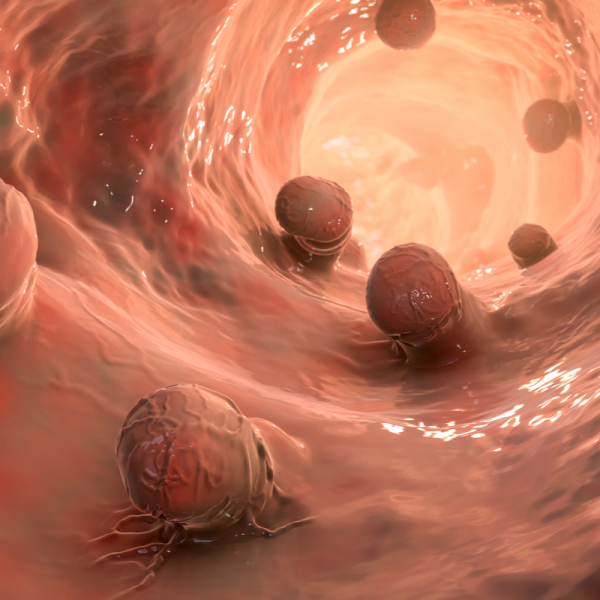
What is polyposis?
Polyposis is the presence of numerous polyps that have formed, for example, within a hollow organ such as the intestine. Doctors refer to an accumulation of several hundred polyps in the gastrointestinal tract as gastrointestinal polyposis. On the other hand, doctors speak of polyposis uteri when the polyps have appeared in the uterus. The term polyposis nasi et sinuum refers to tissue growths that occur in the paranasal sinuses. Polyposis can usually be diagnosed by a biopsy. Polyposis is usually benign, but should still be removed. This is especially true if there is gastrointestinal polyposis. If left untreated, it can degenerate into bowel cancer. On average, people develop polyposis from the second decade of life onwards.
What are the different forms of polyposis?
In addition to the forms of polyposis already mentioned, the following two types are generally distinguished:
- adenomatous polyps: these include familial adenomatous polyposis (FAP) and MUTYH-associated polyposis,
- hamartomatous polyps: which include Peutz-Jeghers syndrome (PJS), juvenile polyposis syndrome (JPS) or PTEN hamartoma tumour syndrome (Cowden syndrome),
- serrated polyps: such as serrated polyposis syndrome (SPS).
Some of these diseases are caused by a genetic predisposition. However, certain bacteria in the colon, harmful environmental exposures and an unhealthy lifestyle can also promote the growth of polyposis.
What are the symptoms of polyposis?
If it is a polyposis gastrointestinalis, symptoms such as diarrhoea or constipation, bleeding, but also colic and abdominal pain can occur. Polyposis uteri, on the other hand, can cause bleeding from the uterus. Since gastrointestinal polyps in particular can degenerate into cancer, a suspected case of this disease should definitely be clarified by a doctor and then treated.
How is polyposis diagnosed?
If polyposis is suspected, the doctor will usually carry out an endoscopic examination and take a tissue sample (biopsy). In this way, polyposis can be differentiated from intestinal carcinoma, intestinal ulcers or diverticulitis (an outpouching of the mucous membrane of the large intestine) and treated in a targeted manner. Specific early detection programmes should make it possible to diagnose polyposis even earlier.
How is polyposis treated?
In gastrointestinal polyposis, the polyps are usually removed by surgery or an endoscopic procedure. This usually involves removing the entire colon and rectum in a proctocolectomy.
| Pathogen | Source | Members - Area |
|---|---|---|
| Precancerous Polyposis | CAFL | As a NLS member you have direct access to these frequency lists |
| Polyposis Coli, familial | EDTFL | As an NLS member you have direct access to these frequency lists |
| Polyposis syndrome, familial | EDTFL | As an NLS member you have direct access to these frequency lists |
| Adenomatous polyposis coli | KHZ | As an NLS member you have direct access to these frequency lists |
